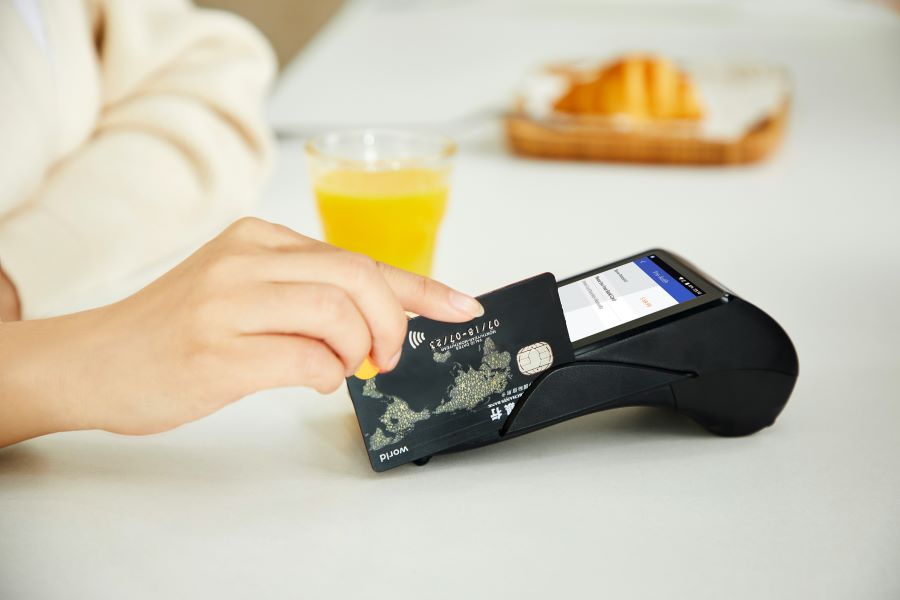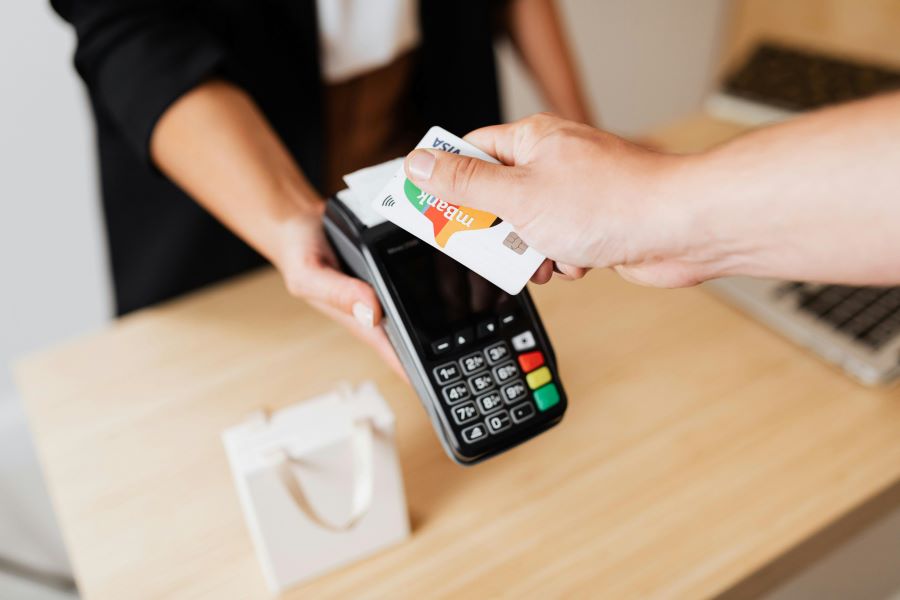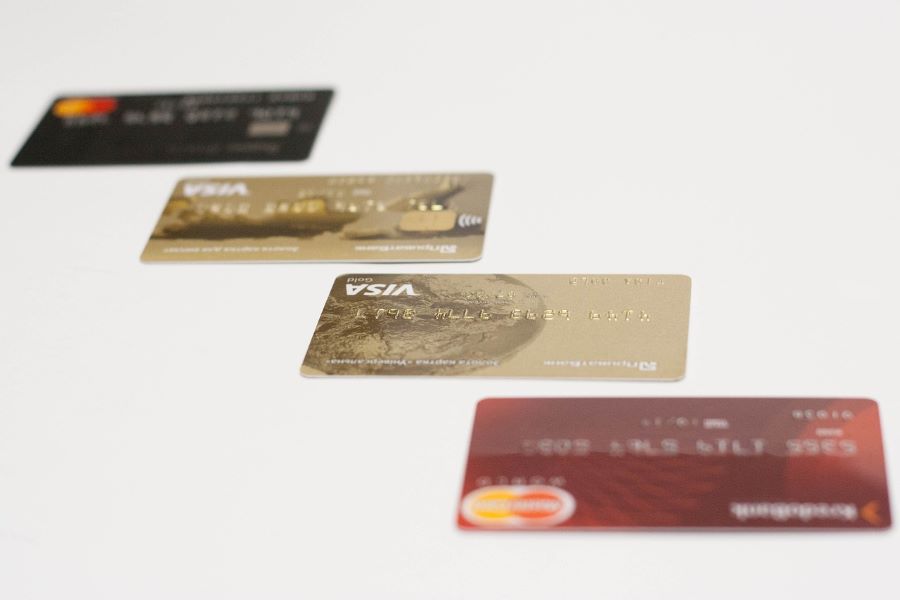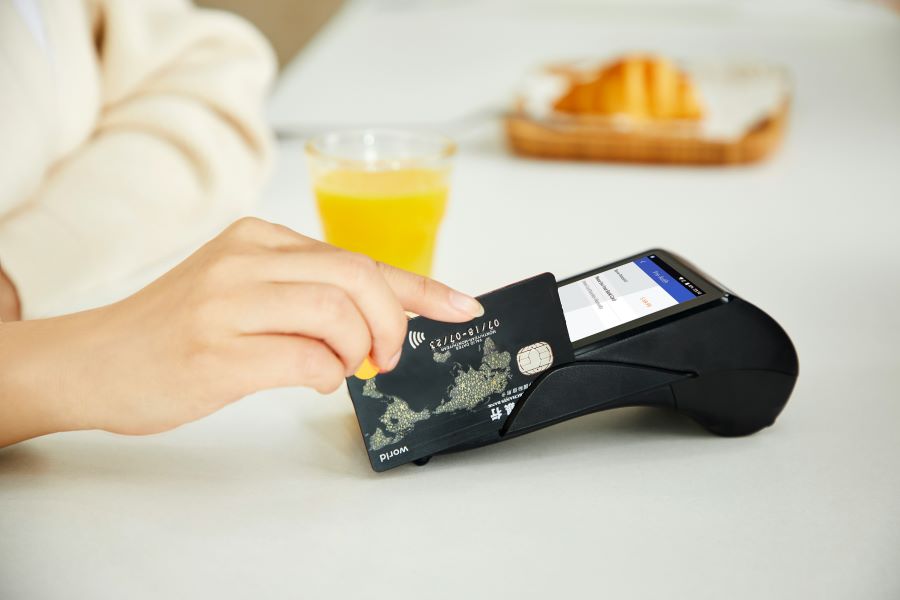Even though we use our credit cards for daily transactions, there are many who are still not completely aware of all the terms and features of the credit cards. This is normal because the average person may not understand everything related to the world of finance. That said, you may have heard about the term PoS in credit card payments quite frequently. But what does this term mean? Is it important?
In this blog, we will help break down the mystery of PoS for you. Here’s all about the meaning of PoS transactions.
What is meant by poS in Credit Card?
POS stands for Point of Sale, which is the system used to manage and complete the purchase process at the location where a transaction occurs. When you hear the term “credit card POS”, it refers to the moment and the mechanism through which your credit card is processed at a checkout counter or terminal. This can be at a physical store, a restaurant, or any other commercial space offering goods or services.
POS Credit Card Meaning and Operations
The primary function of a POS system is to facilitate the processing of transactions between the consumer and the merchant. This includes reading the consumer’s credit card information, verifying the funds by communicating with the cardholder’s bank, and finalizing the purchase, if the funds are sufficient and valid. Here’s a closer look at how POS systems work in credit card transactions:
- Card Reading: The customer’s credit card is either swiped, inserted, or tapped on a POS machine, depending on whether the card uses a magnetic stripe, EMV chip, or NFC technology for contactless payments.
- Data Transmission: The POS system captures the credit card details and sends them to the merchant’s bank or payment processor, which in turn forwards the transaction details to the cardholder’s bank to check for sufficient funds and validate the card’s legitimacy.
- Authorization: The customer’s bank then sends back an approval or denial of the transaction. This process typically takes just a few seconds.
- Completion: Once approved, the transaction is completed. The POS system prints out a receipt or sends an electronic copy to the customer, and the purchase amount is debited from the customer’s credit card account.
Read more: Online shopping with the Airtel Axis Bank Credit Card
Importance of POS Systems in Credit Card Transactions
POS systems play a crucial role in the ecosystem of electronic payments. Here are several reasons why they are essential:
- Speed and Efficiency: POS systems handle transactions rapidly, which is vital during peak business hours, ensuring that customer wait times are minimal.
- Accuracy: By automating the transaction process, POS systems reduce human errors associated with manual entries of prices or calculations.
- Inventory Management: Modern POS systems can integrate with inventory management software to automatically update stock levels as sales are made, helping businesses manage their inventory more efficiently.
- Sales Tracking and Reporting: POS systems can generate detailed sales reports, providing valuable insights into business performance, customer preferences, and potential areas for growth.
- Security: With advancements in technology, POS systems are equipped with various security features to protect sensitive credit card information, reducing the risk of fraud and unauthorized transactions.
What is POS Transaction in Credit Card?
A POS transaction in credit card refers to any purchase made where the card is physically presented to a POS system for processing. This could include buying groceries at a supermarket, dining at a restaurant, or purchasing tickets at a cinema. Each of these transactions requires the card to be read by a POS terminal as part of the payment process.
Read more: Get the Airtel Axis Bank Credit Card without any joining fees
POS in Credit Card: Technology and Advancements
As technology evolves, so do POS systems. The latest developments include mobile POS (mPOS) systems, where merchants use smartphones or tablets with special attachments to process payments anywhere, whether at a festival, a pop-up shop, or during home deliveries. This flexibility has significantly expanded the environments in which POS transactions can occur, providing greater convenience for both merchants and customers.
Additionally, the integration of POS systems with other business management software offers solutions that extend beyond mere payment processing. These integrated systems help businesses manage everything from employee scheduling and payroll to customer relationship management and analytics.
At the end of the day, the term PoS may not be extremely important for the average person, but in the world of finance and retail, PoS is essentially the backbone. These POS systems not only facilitate smooth and secure transactions but also provide valuable data that can help businesses grow and adapt to changing consumer needs. Whether it’s enhancing customer experience, improving operational efficiency, or ensuring transaction security, POS systems are integral to modern commerce.
Read more: How to increase your credit card limit?


 Get App
Get App  Airtel Store
Airtel Store  Login
Login 


